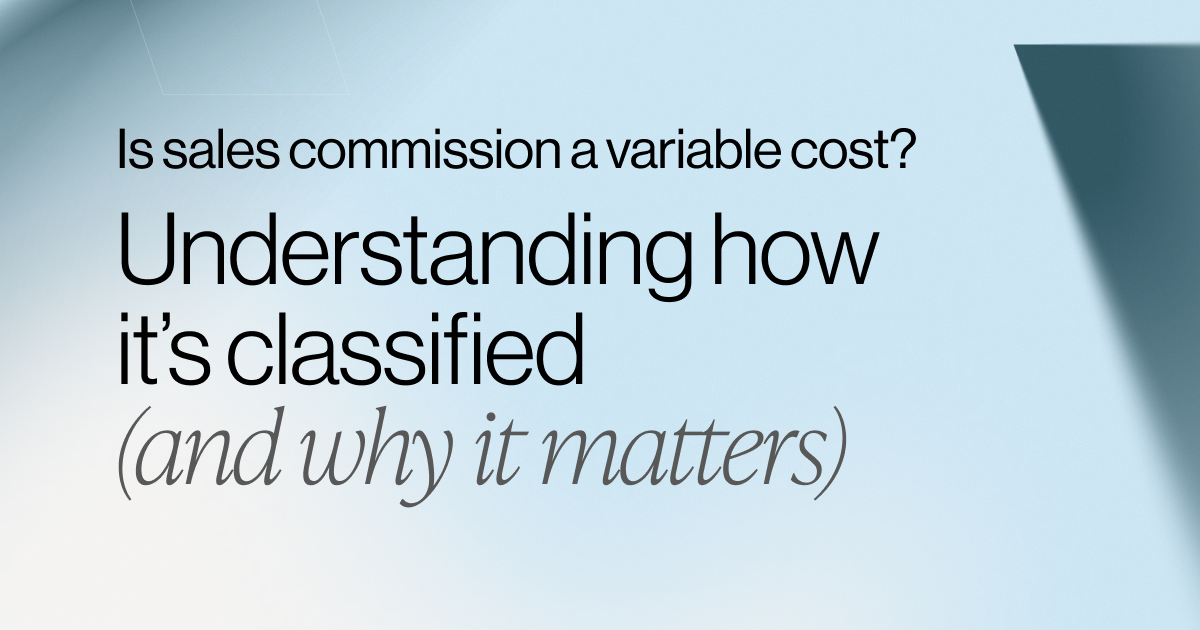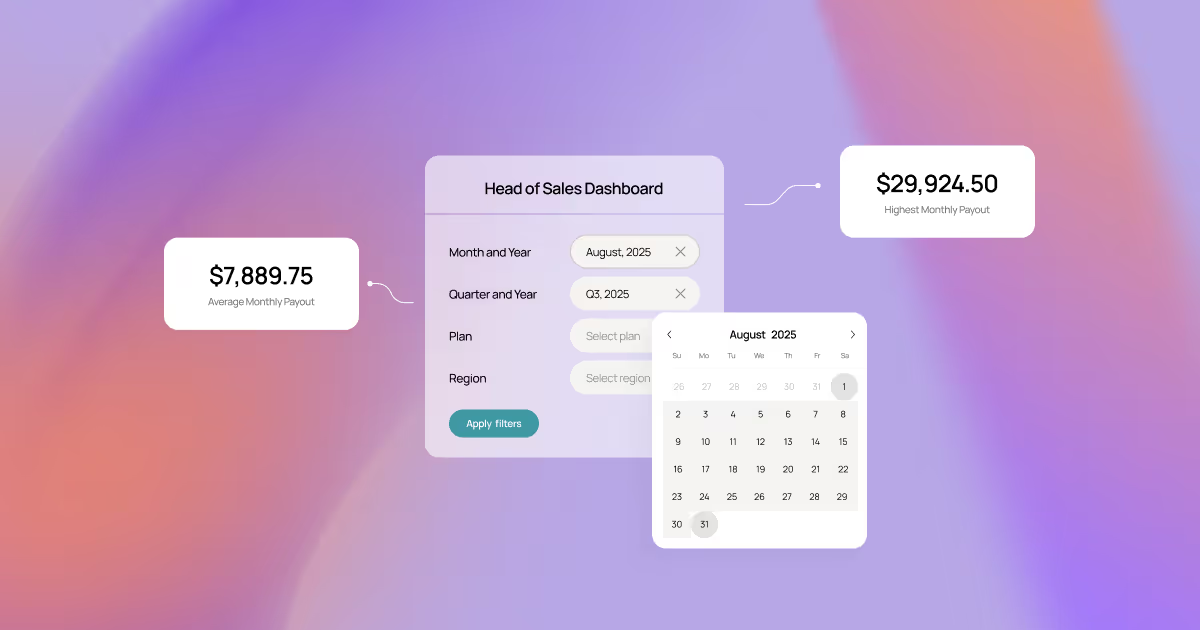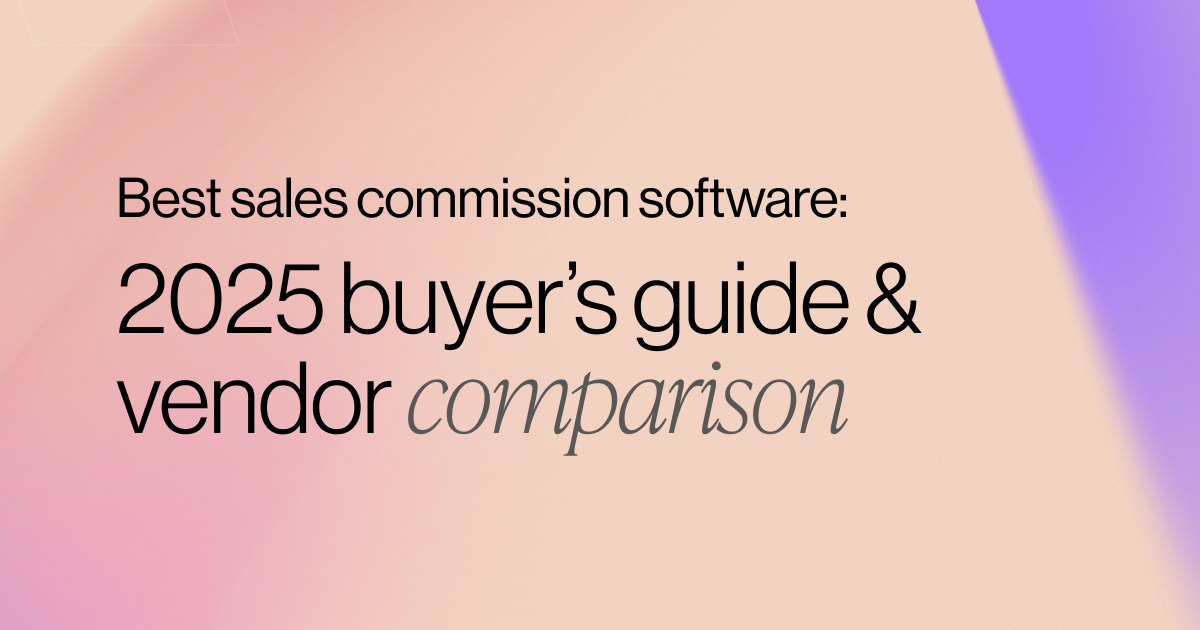Let’s Talk About Compensation Reporting. Done Right, It’s a Game Changer.
This is a guest post written by Praveen Ramireddy, Vice President of Sales at McAlign Consulting.
Having spent the last 15 years working in Sales and Sales Operations, I’ve seen firsthand the direct impact that commission technology has on growing the bottom line.Many companies dread the monthly commission process, even though it doesn’t have to be a daunting one. If you’re looking for advice on how to transform how sales teams are rewarded so they can be more successful…You’re in the right place.
Between reconciling data, ensuring accurate reporting, and interfacing with stakeholders, the overall process of commission reporting can stretch from days to weeks. This impacts both the sales rep experience and the motivational quality of the Compensation Program. Instead of focusing on the high-value drivers designed to increase sales rep capacity and accelerate growth, companies are stuck relying on manual spreadsheets and outdated legacy solutions to manage a process that requires real-time visibility to be successful. Continued reliance on manual commission tracking for a single commission process is not sustainable nor scalable.
Today’s commission process is designed just to get by
There are still some widely adopted compensation software providers that promise to automate the entire commission process but have failed to provide a seamless, flexible experience that helps drive business objectives and achieve corporate goals. Simply put, the data is too opaque and difficult to access to have any real meaning in the company. Unfortunately, when this happens, it’s everyone that misses out.
Your commissionable data set is the most accurate in your company
That’s why it's a shame that companies waste their time updating data and investing in low-value activities when they're practically sitting on a treasure trove of insights and analytics. When managed correctly, the Compensation Program can be a company's highest quality data source. Here’s why: It requires the sales team’s input and is regularly reviewed such that data errors are corrected with more frequency than any other data set at the company.
Now, imagine having instantaneous analytics into the customers at risk of churning, the most profitable segments of your business, or even the emerging customer profiles that can be targeted. You might already run these kinds of analytics on an ad-hoc basis, but do your teams have real-time access to the data? With the right commission software, these insights can be automated and delivered to reps on an individual basis, directing their time and increasing rep performance.
Unlock your commission data to drive performance
Not even a decade ago, compensation experts were so focused on closing the month or year in a timely fashion that performance reports and payout statements to the field had no priority, nonetheless clarity. Advancements in technology have made automatic processing a standard across all industries. But with this comes another set of challenges.
Instead of providing reps with a retroactive view into commission, imagine all of the opportunities that arise when you proactively feed key performance analytics and insights to reps to help them do their jobs better. By definition, a retroactive commission statement can only be so motivational. Sure, it highlights the achievements of the past month or quarter, but it doesn’t say how to replicate that success…
And that is the missed opportunity.
Trust me, saying goodbye to stale, finance-based reports will do you good. Just think that you could share both the dollars and number of deals required to achieve quota. Combine that with rep-specific close rates, customer segments, and most profitable deals, and the incentive program can guide the rep to new earning opportunities — becoming a roadmap to success.
Cross-functional motivation is key
The benefits of including the advanced analytics mentioned above in commission reporting don’t end with reps. Managers can also benefit from these types of analytics as they serve as leading indicators of rep performance. Leadership can identify which reps are at risk of not achieving quota either because their average deal size is too low or the number of deals they need to hit quota is low compared to the pipeline. This data can give managers the feedback they need to effectively intervene and correct rep behavior, increasing the likelihood that the entire team overachieves.
Before you can build effective reporting, it’s essential to classify commission reporting stakeholders using four main groups:
- Sales Representatives
- Management and Executives
- Sales Operations and Compensation Admins
- Finance and Human Resources
Sales Reps
Most sales reps don’t have ample time to go through the reports in detail, nor are they looking for information every day. Instead, they want to know whether or not they’re on track to hit their monthly quota. Are they behind or ahead of the sales number? How much commission did they earn to date? Having to access this critical information helps them understand where to invest their energies.
Management and Executives
While reps are more focused on meeting their numbers, executives typically want a 360-degree view into the commission process. Not only can this help them identify commissionable employees who are struggling and might need help with mentorship — but a company's ability to attract, retain, and reward sales talent affects their ability to achieve corporate targets.
Sales Operations and Comp Admins
Administrators can end up spending many manual hours cleaning data and running calculations to ensure teams are getting paid accurately and on time. This takes away time that could be spent on more significant and strategic initiatives. After all, they are responsible for managing every department. A scalable, accurate solution will simplify the complicated process of commission calculations.
Finance and Human Resources
Finance managers will get clarity into pay versus performance, budgeted spend versus actual spend, and so on. Commission reporting shows them how much deals are costing the company, so they can better understand unit economics and make necessary adjustments.
Commission reporting should enable Sales to do their best work
Commission data — and the insights it can uncover — are routinely the most valuable drivers in a sales organization. Unfortunately, the inflexibility of much of today’s commission software combined with inaccessible data significantly impacts organizations’ ability to use these critical analytics to better rep motivation and performance. Just think of the impact this can have on boosting your sales culture as there’s more transparency into the deep insights that drive sales performance.
My final piece of guidance: Drive better decisions with transparency and analytics. Look for robust yet flexible software that seamlessly integrates with your existing sales tech stack. Once you have this, you have a foundation to build upon clear and structured reports that everyone can understand and benefit from.
.svg)








